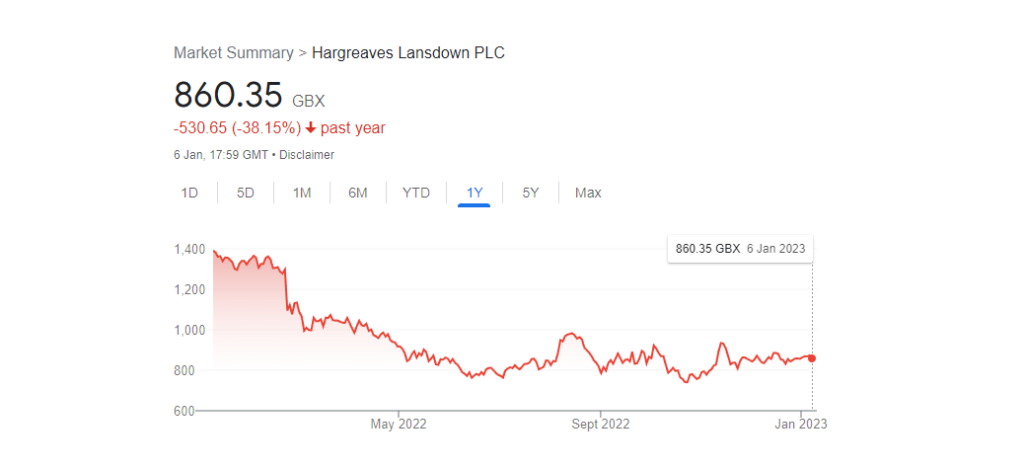The Financial Expert UK Stockbroker News Bulletin is a round-up of the breaking stockbroker news, trends and press releases about the UK brokerage industry, such as:
- New entrants looking to take a foothold in the UK market
- Notice of firms exiting the market
- New products & services offered to UK clients
- Changes in the rankings of firms
- Notable changes in the regulation of stockbrokers
For all the latest news on the UK’s best stockbrokers, follow Financial Expert for more.
Hargreaves co-founder takes a swipe at Hargreaves Lansdown strategy in FT interview
Peter Hargreaves, the billionaire co-founder of UK investment group Hargreaves Lansdown, has told the company’s board to cut costs and focus on the core business after its share price fell. Peter was recently listed in the 2022 Sunday Times rich list with a net worth of approx. £2 billion.
Hargreaves, the largest shareholder in the public company, said to the Financial Times in an exclusive interview that the firm has been one of the worst performers in the FTSE 100 in recent years, citing the strategy pursued by the board and outgoing CEO Chris Hill, as well as rising costs.

Hargreaves criticised the firm’s plan to offer “hybrid” advice, which combines automated financial guidance with advice from advisers. He said automated advice did not consider customers’ risk appetite and could lead them astray.
The dominant firm, the UK’s largest stockbroker by size and number of clients, has 1.7 million customers and offers investment, pensions and savings products to retail investors. It saw costs rise 7% to £285m ($397m) in 2022. As shown in the chart above, the share price of HL has suffered a tumultuous year.
Review our Hargreaves Lansdown broker review.
UK regulated brokers should brace for downbeat retail investor sentiment in 2023
The UK’s best regulated brokers enjoyed a boom year in 2020 when the pandemic struck, and locked-down adults began to look for a different home for the money they would have spent on restaurants, holidays and commuting.
However, at the outset of 2023 such optimism on the personal finance front has given way to despair, in the face of high inflation, soaring mortgage costs and a battering taken by retail investors in 2022.
At Financial Expert, we don’t subscribe to market timing, and believe a more sensible strategy is to drip feed money into the stockmarket during all conditions, including 2023.
However, we know that most retail investors aren’t investing robots that follow such advice with discipline.
Therefore it will alarm the large brokerage firms to hear that a majority of leading economists predict that UK households will experience a “miserable” 2023 due to a worse recession than most other advanced economies.
Over 100 experts responded to an annual Financial Times questionnaire and forecasted a fall in real incomes, a drop in house prices, and rises in unemployment and borrowing costs this year. High inflation, currently at 10.7%, is expected to persist in the UK longer than in other advanced economies due to high energy prices, a shrinking workforce, and stronger interest rates.
While some economists predict a weak recovery by the end of the year, the impact of Brexit and poor investment growth are expected to negatively impact the UK’s longer-term economic performance, reducing its prospects for growth and living standards.
This doesn’t bode well for wealth managers. In October 2022, the CEO of AJ Bell already decried that investments were becoming ‘a tough sell’ for young people. It seems that the frenzied day trading of early 2022 has not given way to more sustainable investment habits following the crash of meme stocks and cryptocurrencies in 2022.
Flight to quality institutions following the collapse of FTX
The collapse of FTX – a well-known and widely regarded cryptocurrency exchange, following the revelation of inappropriate related party transactions and the complete absence of any system of financial control, has left retail and institutional investors in shock.
Before it encountered liquidity and solvency difficulties, FTX was by many measures the second-largest cryptocurrency exchange in the world. Its collapse is beginning to seed the idea in investors’ minds that ‘nowhere is safe’, resulting in a flight out of cryptocurrency as an asset class, and towards more trusted institutions.
The lack of due diligence performed by venture capital firms and institutions that leant upon the FTX platform was apparently poor – a lapse that is coming to bite many firms in an enviable wave of contagion which is spreading across the industry. Most recently, rumours are circulating that crypto lender Genesis is struggling for survival.
Bad news for crypto firms is perhaps a good omen for the storied brokerage firms of the UK, as well as trading apps that have established themselves as well-run companies that have little credit exposure and do not engage in proprietary trading of crypto.
Two years ago, a new crypto trader may not have seen the need to look further than Binance, FTX or Coinbase for their needs. But with crypto now being offered by many reputable fintech firms, investors will be asking themselves whether it is worth the counterparty risk to use a ‘pure’ crypto platform.
For example, UK traders can now buy crypto with Etoro, or even PayPal. Each of these firms has millions of clients and over 10 years of trading history during financial market cycles. What they also have in common is that neither is dependent upon crypto as an asset class for their primary source of trading revenues.